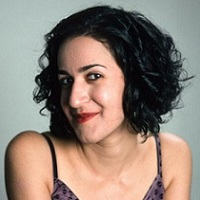Israeli parliamentarian Ruth Calderon, whose now-famous inaugural Knesset speech took the form of a Talmud lesson, recently made the controversial move of speaking at the Komemiyut Conference in Jerusalem. Because she’s an unapologetically secular Talmudist and a known liberal, Calderon’s decision to participate in a far-right religious Zionist conference drew the ire of left-wingers, who weren’t crazy about the idea of her fraternizing with a movement that encourages Jews to refrain from employing Arabs, to protest Jerusalem’s gay pride parade, and to view their lives as inherently more valuable than those of non-Jews. But Calderon insisted on attending, because she believes in engaging in dialogue, even—especially—with those who disagree with her.Addressing the movement, Calderon made a number of impressive, bold, and—given the context—even revolutionary statements. She called their discrimination against Arabs just what it is: racism. She decried their homophobia and transphobia, referring to it as “bigotry, injustice and a profanation of God’s name.” She insisted that “all people…non-religious and religious, women and men, homosexuals and heterosexuals, Jews and non-Jews, all were created in the image of God.” She even went so far as to say that the women in the room were in possession of “important Torah that men cannot teach.” But, believe it or not, that wasn’t even the most revolutionary thing about Calderon’s remarks.
The most revolutionary thing can be heard toward the end of the video posted above, which Tablet’s Yair Rosenberg provided and blogged about yesterday. Here’s how the English subtitles render Calderon’s words to her audience:
We have waited many years for an alliance like this. A true alliance between the non-religious and the religious, within the Zionist project, within which there is a place of course for the Haredi community and for others. I very much hope that we will succeed in building this partnership in truth and in equality, and with honor for the Jewish culture that we carry.
Given the current level of tension between secular and religious Israelis, forging an “alliance”—Calderon’s original Hebrew word, brit, is more typically translated as “covenant”—between the groups would be an achievement bordering on the miraculous. What’s more, for those who live steeped in biblical and rabbinic texts, the word brit carries powerful valences; it conjures up a multilateral, mutually beneficial, lasting and even loving relationship wherein each party commits to doing certain things for the sake of the other. In the Bible, God makes a brit with Abraham, for example, and with the children of Israel. For Calderon to tell her far-right religious audience that she wants to build a covenant with them is to say something truly revolutionary—and, as far as the left is concerned, downright terrifying.
You might argue—as Calderon’s left-wing critics have—that a movement that supports anti-Arab, anti-gay policies is too far-gone to be worth engaging; the gap is just too wide. Maybe. But if anyone could breach that divide, it would be Calderon. Both literally and figuratively, she speaks the language of the religious community (sometimes even better than they do; in the above video, she actually corrects the Hebrew of the man who interrupts her). She’s able to argue with them on their own terms, adducing a wide array of biblical and rabbinic prooftexts. Just as importantly, even though she doesn’t adhere to Jewish law, she has tremendous respect for Jewish tradition. You see this in the video—she mentions kavod, meaning honor or respect, for Jewish culture—and even on her Facebook page, where she posts admiringly about moderate religious Zionist figures such as the late Rabbi Froman.
Like Froman, Calderon’s strength lies in the fact that she’s able to bridge different worlds. She’s not an angry rebel storming the castle of Orthodoxy. She doesn’t want to dismantle Orthodox power wholesale; she just wants to breaks its hegemony, so that there can be an equitable division of resources between the different denominations. She’s aware that Israel’s stridently secular, Torah-allergic culture often exacerbates the religious community’s fear of having its power completely stripped away from it, and that that fear in turn widens the rift between the two groups. And while some in Israel are perfectly content to let that rift widen, to see the two communities drift apart until the fabric of Jewish Israeli society is stretched to the point of disintegration, she would rather try to heal that rift.
It may well be naïve to think that Israel’s religious community will actually listen to Calderon. After all, we’re talking about a country where women are increasingly discriminated against and excluded from public space, and where the mere femaleness of a female politician is enough to ensure she will be routinely objectified, derided, and subjected to problematic double standards. Worse, the evidence already indicates that Calderon herself has struck fear into the hearts of the ultra-Orthodox: after she gave her first parliamentary address-cum-Talmud-lesson, the Haredi press referred to her as “the real existential threat.” The religious Zionist movement, however, does seem to be more open to her; they did, at least, have her speak at their conference. What’s most alarming about this whole episode, then, is that the staunchest opposition to Calderon’s desire for open and honest dialogue came not from the religious right but from the secular left.






